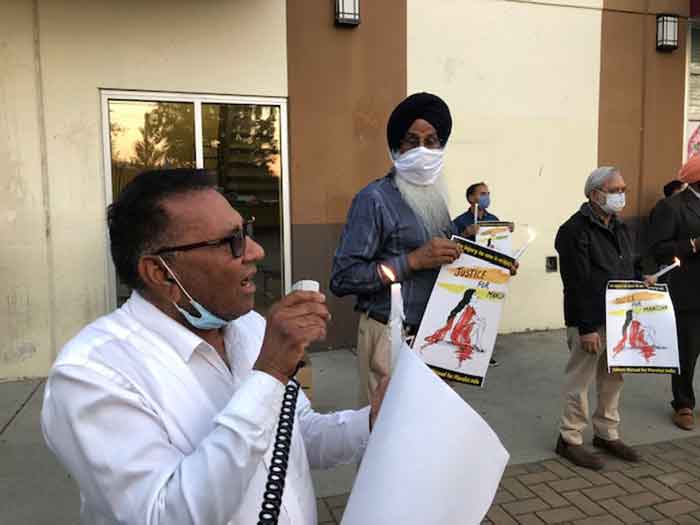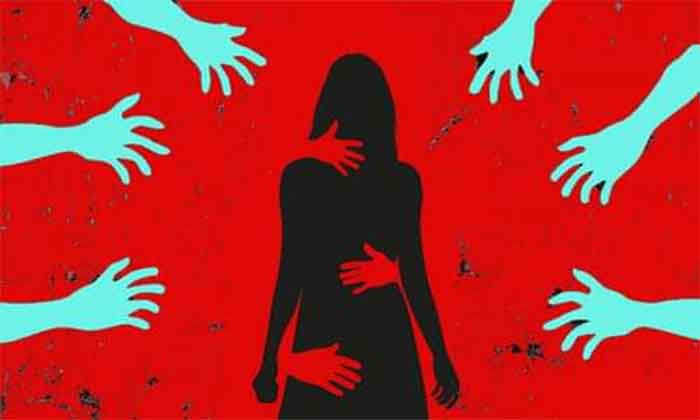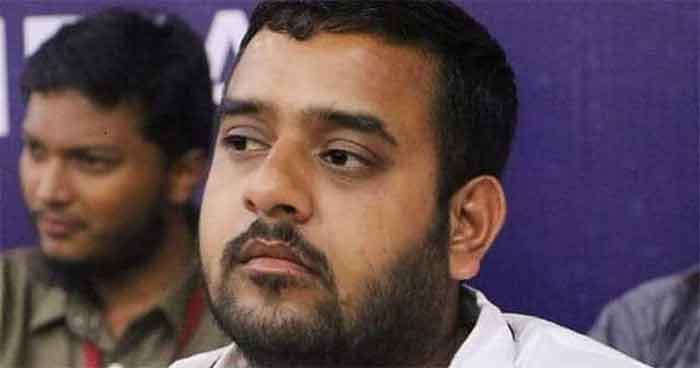
South Asians activists came together on the evening of Friday, October 2, to raise voices against the recent gang rape of a Dalit woman in Uttar Pradesh, India. The victim died after struggling for life for two weeks. She was brutally assaulted and raped by people belonging to the upper caste.
Her death has outraged the community of so-called untouchables who have been facing caste-based oppression for centuries. Under the current ruling right wing Hindu nationalist Bhartiya Janata Party (BJP) government, such atrocities have grown. Not only religious minorities, especially Muslims, Dalits also continue to be targeted with impunity by the right wing goons.
On the call given by Indians Abroad for Pluralist India (IAPI), two dozen people showed up at the candlelight vigil and rally right outside the Indian passport and visa office in Surrey.
The participants, the majority of who were from the Dalit background, held signs asking for justice to Manisha and lit candles in her memory. They also raised slogans against the BJP government.
The speakers were unanimous in their criticism of the BJP government which is openly shielding the suspects and patronizing violence against Dalits and Muslims to transform India into a Hindu theocracy.
Incidentally, October 2 is also the birth anniversary of MK Gandhi, the towering leader of the passive resistance movement against British occupation of India. Gandhi was assassinated for standing up against atrocities on Muslims and for denouncing untouchability by the Hindu fundamentalists. It is a separate matter that he was not opposed to the caste system, because of which Dalit activists find him as an extremely problematic figure. The followers of the ideology of his killers are presently governing the country.
Among those who addressed the gathering were Dalit activists Roop Lal Gaddu, Surinder Sandhu, Ajmer Singh, Sukhwinder Kaur and Anita, besides Sikh activist Ranjit Singh Khalsa and anti racism educator Annie Ohana.
IAPI members Tejinder Sharma and Gurpreet Singh also spoke on the occasion, which began with a poem by Amrit Diwana, a well known progressive poet and writer in the Punjabi community. His poem was based on the systemic sexual abuse Dalit women endure in the Indian society.
SIGN UP FOR COUNTERCURRENTS DAILY NEWSLETTER
















































